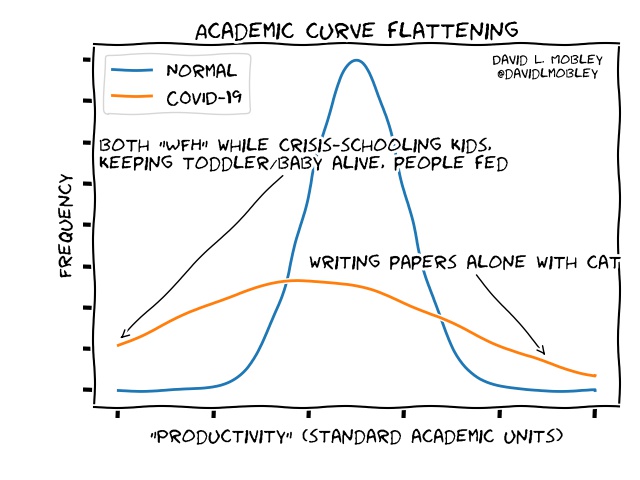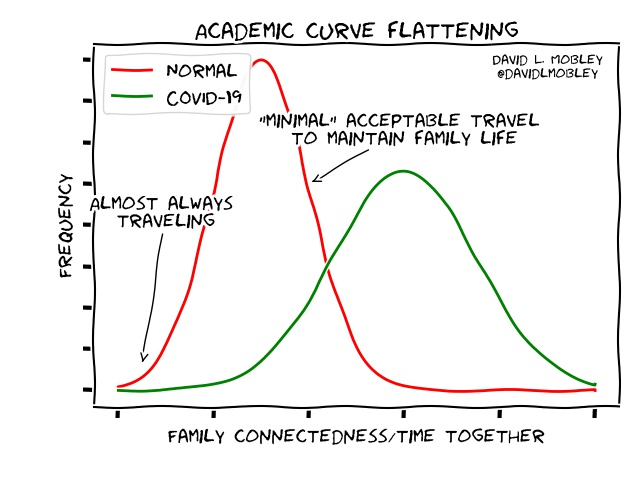COVID and the other kind of curve-flattening
There’s been much talk of curve-flattening in the context of COVID-19, but I realized there’s another type of curve-flattening going on that doesn’t really get as much attention. I first started thinking about this in the context of my work, and put together this cartoon:

I kept hearing how some of my colleagues were excited they finally had lots of time alone to write papers, whereas others were overwhelmed with newfound childcare responsibilities and helping to school their children, etc., while also trying to work – so that they could only work in short spurts or late at night or similar. I tend to think in graphs, so I put together the above to illustrate how the turmoil of our timeshas broadened the distribution of what’s “normal”.
But then after I thought a bit more, I realized this has also had profound impacts on the academic travel culture where the most “successful” faculty are frequently away from their families speaking about their research at conferences, seminars, and workshops around the country and the globe. This has resulted in a different type of curve flattening, where some families are spending a lot more time together:

As time goes on, though, I’ve realized the idea I depicted in these cartoons, though, reaches a lot further than just academia – and far outside either of the areas I originally applied it to. This is a time where people’s experiences are far more diverse than normal. For some, it’s life as usual. For some, they have far more time and a lot of it in isolation. Others have far less time. For some, work is unusually slow or they are out of work; for others, work is busier than ever before. Some are going hungry. In a way, it seems like the only thing we can say that applies universally is that everyone has been profoundly affected.
My main point, I suppose, is that we ought to have even greater tolerance than normal for people’s quirks, foibles, and unique circumstances – and be more willing than normal to ask for help if we need it, or help those who do need it if we don’t. Our experiences are so diverse, much more so than normal. Let’s not assume others’ experiences match ours, but instead try to understand the realities of their situation and find how we can best support one another.